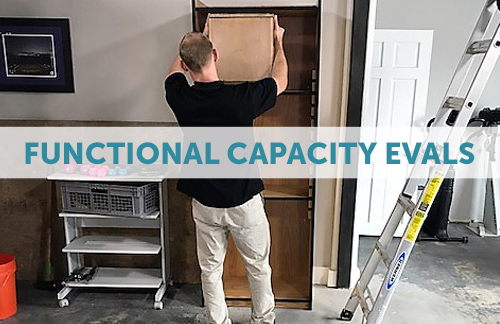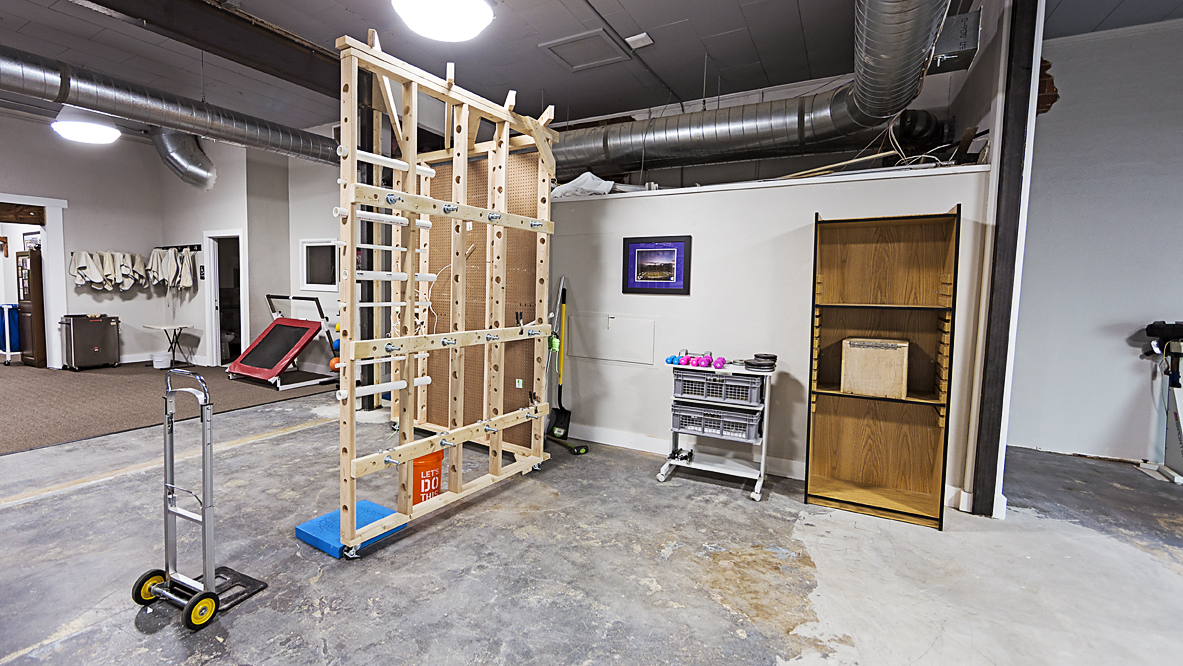Industrial Rehabilitation
Our physical therapists provide a comprehensive approach to industrial rehabilitation. Our model is directed at mitigating risk and exposure, specifically towards lost time, expedited return to work, and prevention. The local expertise of our rehabilitation teams and the ability to customize programs to an employer’s specific needs, ensure a maximum return on investment.
From start-up to program implementation our clinics have the tools to make the process seamless and most importantly, medically and legally compliant.
Industrial Rehabilitation Services*
*Not all services available at all locations
- Ergonomic workstation assessments
- Fit-for-work assessments
- Fitness programs for the industrial athlete
- Functional capacity evaluations
- Job demands analysis
- Job-specific rehabilitation
- Job transfer testing
- On-site exercise and stretching program development
- On-site therapy support
- Post offer pre-employment screening
- Preventative maintenance – testing for the aging workforce
- Work conditioning/hardening programs
Common Industrial Rehabilitation Physical Therapy Services

Ergonomic Evaluations
Expand For More Info
Ergonomics is the scientific study of people at work. The goal of ergonomics is to reduce stress and eliminate injuries and disorders associated with the overuse of muscles, bad posture, and repeated tasks. This is accomplished by designing tasks, workspaces, controls, displays, tools, lighting, and equipment to fit the employee´s physical capabilities and limitations.
Ergonomically designed workstations can help employees avoid pain and injuries that may arise from common risk factors.
Common Ergonomic Risk Factors:
- Awkward postures
- Prolonged positions
- Repetitive movements
- Excessive force
- Vibration
- Contact stress
What to Expect from an Ergonomic Evaluation:
A physical or occupational therapist will perform an analysis of an in-office or at-home workstation to assess and identify any problem areas that could impact the
health and performance of the individual using the workstation.
They will then make adjustments to the set-up that brings the workstation into a neutral position, resulting in reduced stress and strain on the body. Education on stretching and movements to help reduce the likelihood of injury is also provided.

Functional Capacity Evaluations (FCE)
Expand For More Info
A Functional Capacity Evaluation (FCE), sometimes referred to as a Physical Capacity Evaluation, is a test that ensures an accurate determination of an employee’s abilities and/or return-to-work readiness. The purpose of the evaluation is to assure a safe and sustained return to duties. The evaluation can be used before, during, or after rehabilitation.
Our FCE uses cross-checks for the validity and reliability of measurements. The tests can also be used to determine possible reasons for delayed recovery or inconsistencies in the employee’s test results.
Common FCE Tests Include:
- FCE 1 – An impairment rating or closing exam for a worker who has a regular work release. (45 min.)
- FCE 2 – Checks general residual function. The worker is returning or has returned to work and there are no validity concerns. (2 to 2.5 hrs)
- WCE – Assesses the ability to perform essential job tasks and detailed validity tests are required. The test assesses the ability to sustain work activity over time and requires a Job Analysis. (3-4 hrs.)
- Mini FCE – A brief assessment to determine a worker’s status throughout the treatment program. It may also be used as a baseline.

Work Conditioning Programs
Expand For More Info
Injured employees who are deconditioned may have a higher risk of re-injuring themselves if they return to work in a deconditioned state. The Work Conditioning Program can be very beneficial for:
- Workers who are back to work with restrictions or modified duty
- Workers who have been off work and are motivated to return to work
- Workers one year or less from injury (Workers off work greater than one year must meet additional prescreening criteria.)
Work Conditioning Programs are goal-oriented and designed to restore neuromuscular functions in preparation for return to work. Each program includes a physical therapy evaluation, a miniFCE, and specifically designed conditioning exercises to improve strength, power, endurance, flexibility, and work task simulation.
What to Expect from a Work Conditioning Program:
- Typically ranges from 4 to 6 weeks, 3 to 5 days per week, 2 to 5 hours per day
- Is cost-effective, efficient, and results-driven
- Minimizes prolonged recovery from an injury
- Focuses on required job tasks
- Provides regular updates communicated to the physician, case manager, and /or claims adjuster
- Is coordinated with the employee’s part-time work schedule, if indicated


